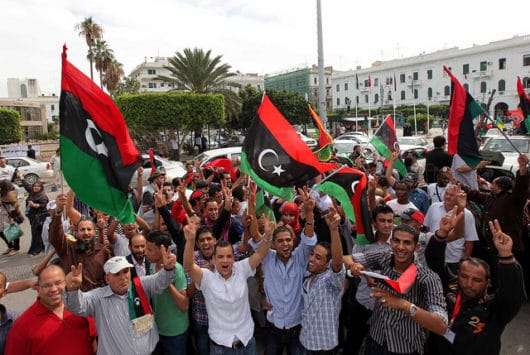TOP 10 FACTS ABOUT LIVING CONDITIONS IN LIBYA


Naveen Sridhara
TOP 10 FACTS ABOUT LIVING CONDITIONS IN LIBYA

Libya, located on the Mediterranean coast of North Africa, has been marked by turmoil since the Arab Spring that occurred in 2011.
Formerly a dictatorship, the country has undergone many changes in recent years.
The top 10 facts about living conditions in Libya presented in the article below highlight what life is like in the country today.
Top 10 Facts About Living Conditions in Libya
- Libya is in a state of political unrest. Since the fall of former leader Moammar Gadhafi, the Libyan government has splintered into multiple factions, including two parliaments, two central banks, three potential prime ministers and multiple armed militia groups.
- Recent plans to hold general elections in early December have been canceled. Due to stalled talks between factions, the elections did not take place, but a recent summit in Palermo saw both factions recognized by U.N.- Government of National Accord and General Khalifa Hafter, who holds sway over much of Eastern Libya, open to holding elections in early 2019.
- A recent ceasefire in Tripoli is still active. The ceasefire, brokered by the U.N. in September continues to hold, with armed groups within the capital withdrawing from key locations. Libyan officials hope to replicate the success achieved in the capital elsewhere in the country.
- Libya relies heavily on its oil reserves. The country has the largest oil reserves in Africa and the ninth largest in the world, estimated at 48,363 billion barrels. Oil and natural gas are out of most importance for the country economically, accounting for about 60 percent of GDP and 82 percent of export earnings. Sadly, due to the current climate in the country’s crude oil production has fallen, from over 1,500 barrels per day before the 2011 war to 1,000 barrels per day in 2018.
- The current political situation and a drop in oil production have led to a high unemployment rate, but the situation is improving. In recent years, unemployment has been slowly but steadily decreasing, from 19 percent in 2012 to 17.7 percent in 2017.
- One of the biggest challenges facing the Libyan population is access to health care. As a result of the recent conflict, only four of the country’s hospitals are functioning at high capacity, and over 20 percent of the country’s primary health care facilities are closed.
- Improvements in health care are underway. The World Health Organization (WHO) has been able to distribute the first batch of essential medicines to multiple primary health care centers. The medicine will benefit an estimated 19,000 people for three months, and a second and third batch of deliveries are in the works.
- The life expectancy in the country is high. Since the middle of the 20th century, life expectancy has improved dramatically. In 1950, the average lifespan was just 52.9 years. Since then, the average lifespan has increased to 76.7 years in 2018.
- Unrest in the country has led to intermittent access to water. The country’s largest city, Tripoli, saw its supply of water cut off by armed groups twice- at the end of 2017 and in September 2018, with one such cut lasting nearly a week, forcing residents to rely on potentially unsafe water.
- Programs are in place to improve living conditions in Libya. The Government of National Accord, with the U.N. support, launched the Stabilization Facility for Libya. Through the program supplies such as ambulances, garbage trucks, solar panels and computers are being provided to schools and government offices. The program is also helping repair damaged infrastructure and provide education to millions across the nation.
Although there is still uncertainty for the country’s future, these top 10 facts about living conditions in Libya show that there is a reason to believe things are getting better.
Projects like the Stabilization Facility for Libya, the decreasing unemployment rate and the potential for new general elections all show that things are getting better for Libyan citizens.







